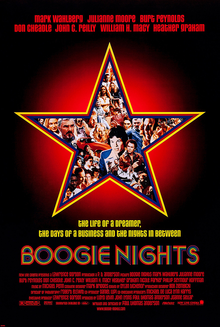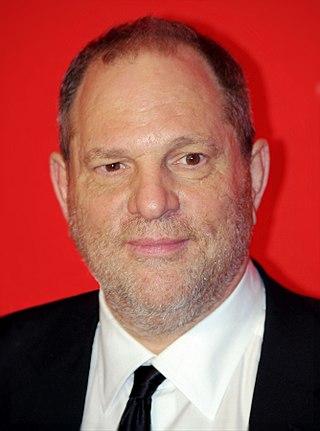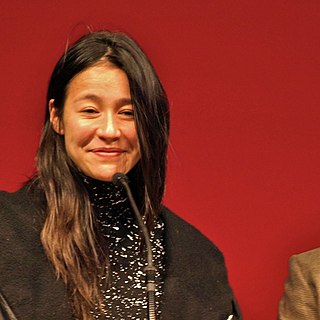Related Research Articles

Levittown is a hamlet and census-designated place (CDP) in the Town of Hempstead in Nassau County, on Long Island, in New York. It is a suburb of New York City, located halfway between the villages of Hempstead and Farmingdale. The CDP had a total population of 51,758 at the time of the 2020 census, making it the most populous unincorporated CDP in Nassau County and the second most populous CDP on Long Island, behind Brentwood.

Levittown is a census-designated place (CDP) and planned community in Bucks County, Pennsylvania, United States. It is part of the Philadelphia metropolitan area. The population was 52,699 at the 2020 census, down from 52,983 at the 2010 census.

Edmund Alexander Emshwiller was an American visual artist notable for his science fiction illustrations and his pioneering experimental films. He usually signed his illustrations as Emsh but sometimes used Ed Emsh, Ed Emsler, Willer and others.

Penelope Spheeris is an American film director, producer, and screenwriter. She has directed both documentary and scripted films. Her best-known works include the trilogy titled The Decline of Western Civilization, each covering an aspect of Los Angeles underground culture, and Wayne's World, her highest-grossing film.

Edward Joseph Money was an American singer and songwriter who, in the 1970s and 1980s, had eleven Top 40 songs, including "Baby Hold On", "Two Tickets to Paradise", "Think I'm in Love", "Shakin'", "Take Me Home Tonight", "I Wanna Go Back", "Endless Nights", "Walk on Water", and "The Love in Your Eyes". Critic Neil Genzlinger of The New York Times called him a working-class rocker. In 1987, he was nominated for a Grammy Award for Best Male Rock Vocal Performance for "Take Me Home Tonight".

Boogie Nights is a 1997 American period drama film written, directed, and co-produced by Paul Thomas Anderson. It is set in Los Angeles's San Fernando Valley and focuses on a young nightclub dishwasher who becomes a popular star of pornographic films, chronicling his rise in the Golden Age of Porn of the 1970s through his fall during the excesses of the 1980s. The film is an expansion of Anderson's mockumentary short film The Dirk Diggler Story (1988), and stars Mark Wahlberg, Julianne Moore, Burt Reynolds, Don Cheadle, John C. Reilly, William H. Macy, Philip Seymour Hoffman, and Heather Graham.

William Jaird Levitt was an American real-estate developer and housing pioneer. As president of Levitt & Sons, he is widely credited as the father of modern American suburbia. In 1998 he was named one of Time Magazine's "100 Most Influential People of the 20th Century."

Harvey Weinstein is an American former film producer and convicted sex offender. In 1979, Weinstein and his brother, Bob Weinstein, co-founded the entertainment company Miramax, which produced several successful independent films including Sex, Lies, and Videotape (1989); The Crying Game (1992); Pulp Fiction (1994); Heavenly Creatures (1994); Flirting with Disaster (1996); and Shakespeare in Love (1998). Weinstein won an Academy Award for producing Shakespeare in Love and also won seven Tony Awards for plays and musicals including The Producers, Billy Elliot the Musical, and August: Osage County. After leaving Miramax, Weinstein and his brother Bob founded The Weinstein Company (TWC), a mini-major film studio. He was co-chairman, alongside Bob, from 2005 to 2017.

Kirby Bryan Dick is an American film director, producer, screenwriter, and editor best known for directing documentary films. He received Academy Award nominations for Best Documentary Feature for directing Twist of Faith (2005) and The Invisible War (2012). He has also received numerous awards from film festivals, including the Sundance Film Festival and Los Angeles Film Festival.
Evan Beloff is a Canadian film writer, producer, director and production company executive. He is known for Bigfoot's Reflection (2007), Daughters of the Voice (2018) and A People's Soundtrack (2019).

American Splendor is a 2003 American biographical comedy drama film written and directed by Shari Springer Berman and Robert Pulcini. The film, which chronicles the life of comic book writer Harvey Pekar, is a hybrid production featuring live actors, documentary, and animation. It is based on the 1976–2008 comic book series of the same name written by Pekar and the 1994 graphic novel Our Cancer Year written by Pekar and Joyce Brabner. The film stars Paul Giamatti as Pekar and Hope Davis as Brabner. It also features appearances from Pekar and Brabner themselves, who discuss their lives, the comic books, and how it feels to be depicted onscreen by actors.

Roger Michell was a South African-born British theatre, television and film director. He was best known for directing films such as Notting Hill and Venus, as well as the 1995 made-for-television film Persuasion.

R. J. Cutler is an American filmmaker, documentarian, television producer and theater director.

Wonderland is a 1999 British drama film directed by Michael Winterbottom. The film stars Ian Hart, Shirley Henderson, Kika Markham, Gina McKee, Molly Parker, Jack Shepherd, John Simm, Stuart Townsend, Enzo Cilenti, and Sarah-Jane Potts.

Joshua Lincoln Oppenheimer is an American film director based in Copenhagen, Denmark. He is known for his Oscar-nominated films The Act of Killing (2012) and The Look of Silence (2014), Oppenheimer was a 1997 Marshall Scholar and a 2014 recipient of the MacArthur fellowship.

Marshall Curry is an Oscar-winning American documentary director, producer, cinematographer and editor. His films include Street Fight, Racing Dreams, If a Tree Falls: A Story of the Earth Liberation Front, Point and Shoot, and A Night at the Garden. His first fiction film was the Academy Award-winning short film The Neighbors' Window (2019).

If a Tree Falls: A Story of the Earth Liberation Front is a 2011 American documentary film by filmmaker Marshall Curry. It tells the story of activist Daniel G. McGowan of the Earth Liberation Front (ELF), from his first arson attacks in 1996 to his 2005 arrest by the Department of Justice. The film also examines the ethics of the ELF at large and how terrorism is to be defined.

Uli M Schueppel is a German director and documentary filmmaker. The "M" in the middle of the name is not an abbreviation of a name, but a reference to the Elvis Presley's song "Trouble": My middle name is misery. It is written without dot.

Elizabeth Chai Vasarhelyi is an American documentary filmmaker. She was the director, along with her husband, Jimmy Chin, for the film Free Solo, which won the 2019 Academy Award for Best Documentary Feature. The film profiled Alex Honnold and his free solo climb of El Capitan in June 2017. Their first scripted film venture was Nyad, a biopic chronicling Diana Nyad's quest to be the first person to swim from Cuba to Florida.
The 7th Annual Gotham Independent Film Awards, presented by the Independent Filmmaker Project, were held on September 16, 1997, and were hosted by Jon Stewart. At the ceremony, Bob and Harvey Weinstein were honored with a Career Tribute with Kevin Kline, Ruth Prawer Jhabvala, Faith Hubley and Errol Morris receiving the other individual awards.
References
- 1 2 3 Harvey, Dennis. "Wonderland," Variety, February 2, 1997. Retrieved September 14, 2019
- 1 2 3 4 5 6 Vanderbilt, Tom. "A Suburban Safari," New York (magazine), October 27, 1997. Retrieved September 13, 2019
- 1 2 Holden, Stephen. "FILM REVIEW; Levittown, Cut Down By Ridicule," The New York Times, Friday, October 24, 1997. Retrieved September 14, 2019
- 1 2 Petrakis, John. "'Wonderland' Surveys Levittown, The Prototypical Postwar Suburb," Chicago Tribune, Friday, May 22, 1998. Retrieved September 14, 2019
- ↑ Griffith, Bill. Lost and Found: Comics 1969–2003. Seattle, WA: Fantagraphics Books, 2012. Retrieved September 14, 2019
- 1 2 Krach, Aaron. "Wonderland or Bust: A Conversation with Director John O’Hagan," IndieWire, Thursday, October 23, 1997. Retrieved September 14, 2019
- ↑ Taylor, Ella. "Levittown: The Soul of Suburbia," The Atlantic (magazine), November 1997. Retrieved September 14, 2019
- ↑ Goodman, Walter. "Peeking in the Windows of an American Dream," The New York Times, Monday, July 7, 1997. Retrieved September 14, 2019
- ↑ Scoville, Jen. "Shortcuts," The Austin (TX) Chronicle, February 7, 1997. Retrieved September 14, 2019
- ↑ Harvey, Dennis. "'King,' 'Wonderland' top S.F. Film Festival," Variety, May 20, 1997. Retrieved September 14, 2019
- ↑ "HBO and In The Gloaming Tops Winners at 1997 CableACE Awards," The Associated Press (AP), Saturday, November 15, 1997. Retrieved September 14, 2019
- ↑ Ridley, Jim. "Day-by-Day Coverage of the 29th Annual Nashville Independent Film Festival," Nashville Scene, Thursday, June 18, 1998. Retrieved September 14, 2019
- ↑ "1997 Winners and nominees". Gotham Independent Film Awards. Archived from the original on March 25, 2016. Retrieved October 7, 2018.
- ↑ "50th Annual DGA Awards". Directors Guild of America. Retrieved September 4, 2018.